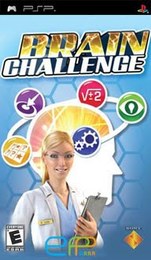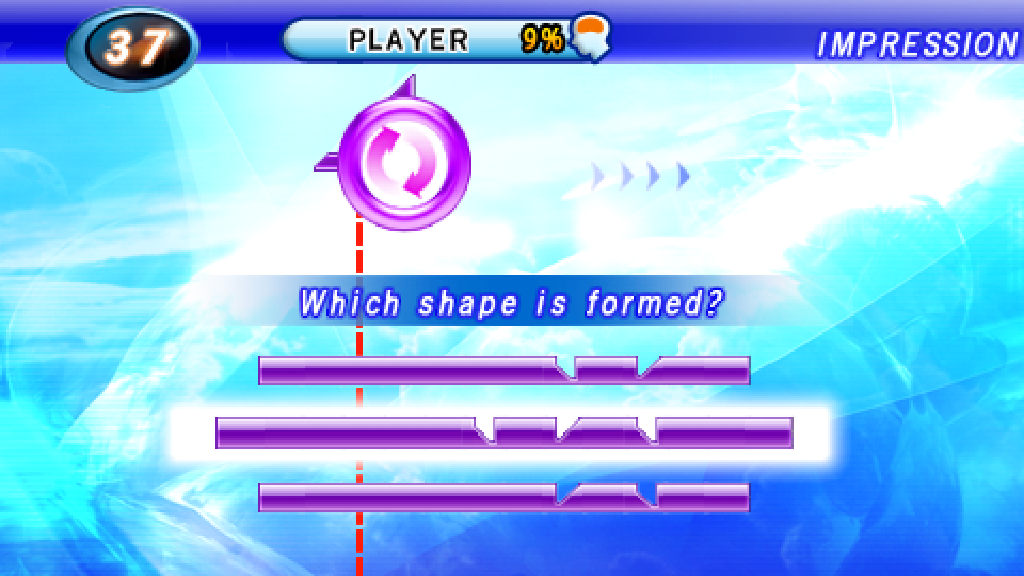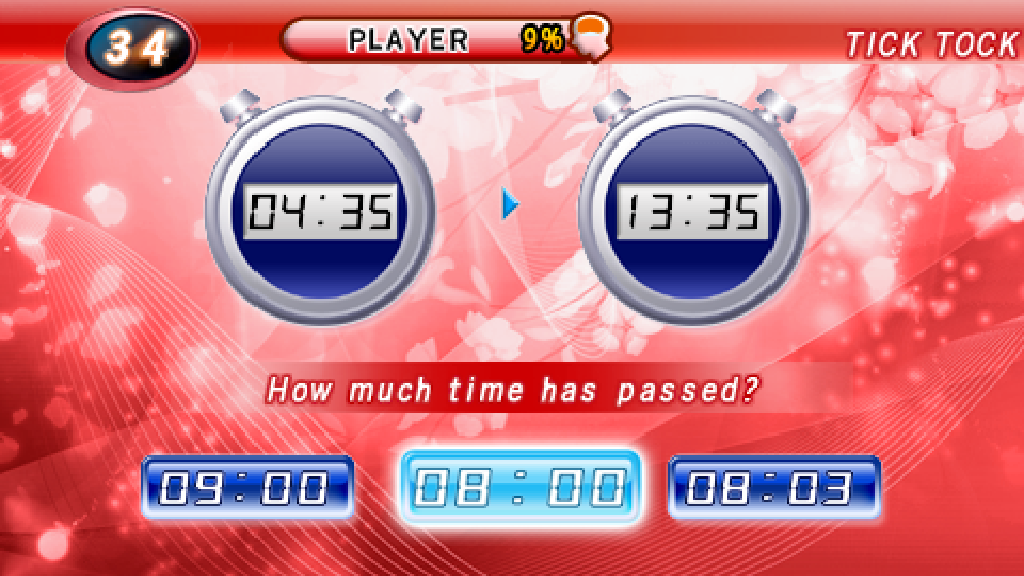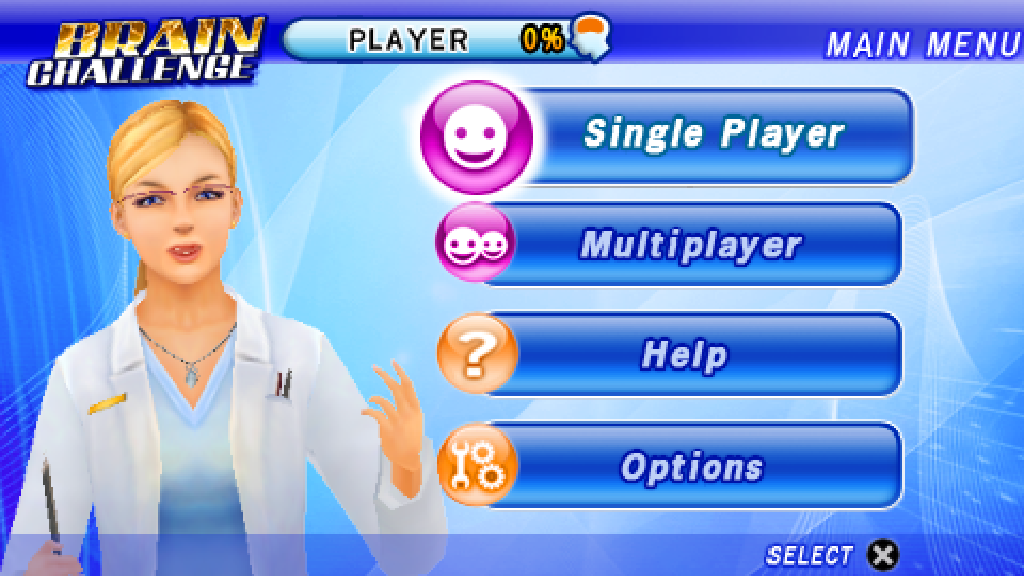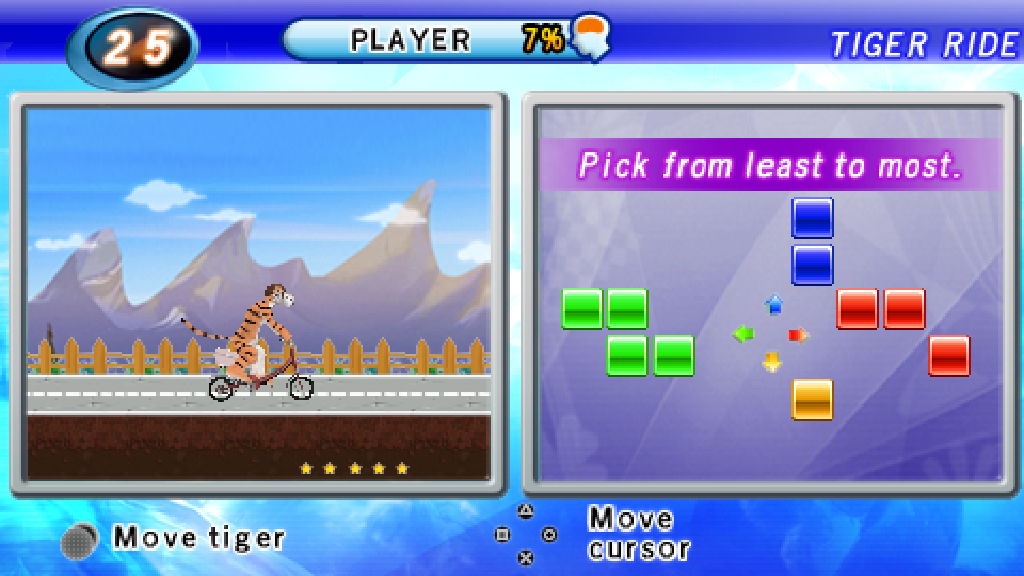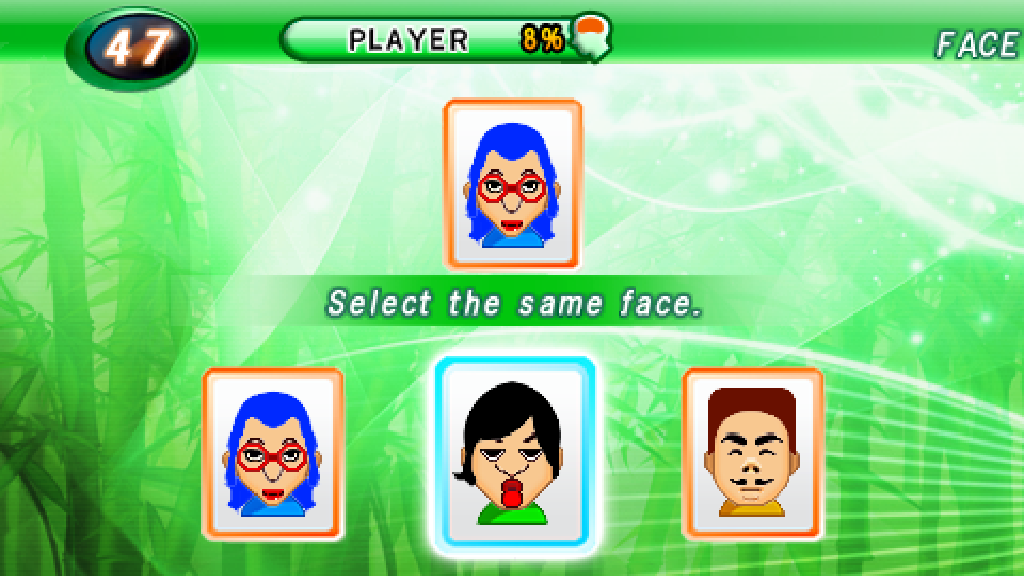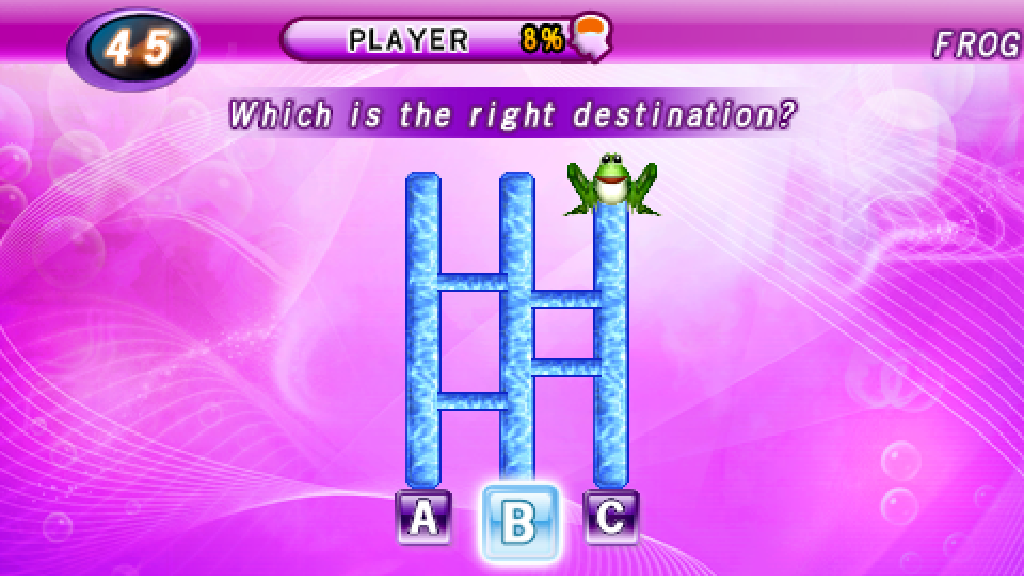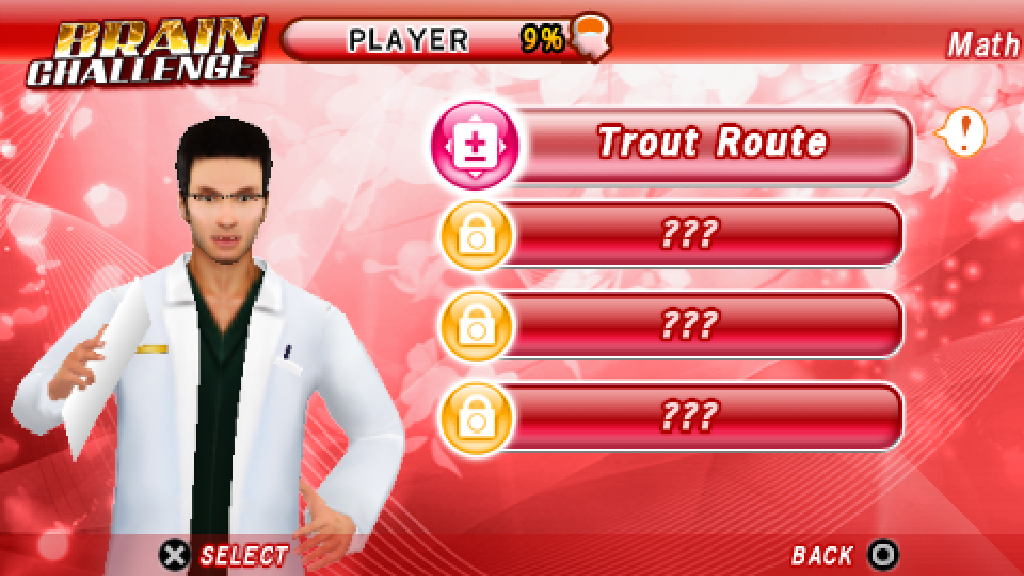BRAIN CHALLENGE (PSP)
Upon booting up Brain Challenge, I felt the grumpy purist in me beginning to surface, warning me that I was about to resent what I was letting myself in for. The notion that it would act as another unashamed flag-bearer for fluffy ‘edutainment’ games probably wasn’t aided by some super-clinical menu screens, and music that carried with it the air of a tacky game show. Then there’s the tutoring you receive from the white-coat clad virtual ‘Doctors’, whose irritating manner suggests they gauge the average player’s mental competence as somewhere between that of a toddler and a watermelon. If they’re not being condescending about your memory or reflex skills, they’re spouting facts about brain usage (before later testing you to check that you were paying attention in the first place), or pompously criticising you for being up too late if you play the game at night…
But no matter how much Brain Challenge likes to pretend that it’s less of a game and more a lifestyle accessory for casual players, I couldn’t help but like it. A quick, unobtrusive download of 43MB from the PlayStation Network, BC offers a host of conundrums and puzzles that aim to test your mental fortitude in such categories as logic, maths and memory, in a manner that bares more than a passing resemblance to a number of DS brain-trainers doing the rounds at the time. It won’t make you cleverer, and it’s debatable whether it really sharpens your mind in any meaningful way but, as with all games with which you invest your time, it gives you the satisfaction of seeing your improvements yield positive results, dissecting and explaining them via a fine range of statistics and graphs.
But no matter how much Brain Challenge likes to pretend that it’s less of a game and more a lifestyle accessory for casual players, I couldn’t help but like it. A quick, unobtrusive download of 43MB from the PlayStation Network, BC offers a host of conundrums and puzzles that aim to test your mental fortitude in such categories as logic, maths and memory, in a manner that bares more than a passing resemblance to a number of DS brain-trainers doing the rounds at the time. It won’t make you cleverer, and it’s debatable whether it really sharpens your mind in any meaningful way but, as with all games with which you invest your time, it gives you the satisfaction of seeing your improvements yield positive results, dissecting and explaining them via a fine range of statistics and graphs.
There’s plenty to recommend it, not least a pocket-friendly price-tag, but perhaps Brain Challenge’s biggest success is how well it fits the gaming-on-the-move mantra. A lot of PSP games have been criticised for mimicking home-console games too closely, not proving practical enough for short runs. BC not only fits all of its tasks comfortably around the PSP’s controls and screen, it is perfect for a quick game on the go. You can perform the Daily Test in a matter of minutes, meaning it’s an ideal and engaging way of passing a bus or train journey.
The mini-games themselves are predictably simple, but a good majority of them work really well. Granted, matching images in an identity parade, or judging which in a series of balls is bouncing highest doesn’t exactly sound like high-art, but there’s a very moreish appeal to Brain Challenge, and cleverly, the difficulty in each category adapts fluidly around your performance level, meaning that even if you’re doing really well in one area and languishing in another, the challenge feels relatively consistent.
The mini-games themselves are predictably simple, but a good majority of them work really well. Granted, matching images in an identity parade, or judging which in a series of balls is bouncing highest doesn’t exactly sound like high-art, but there’s a very moreish appeal to Brain Challenge, and cleverly, the difficulty in each category adapts fluidly around your performance level, meaning that even if you’re doing really well in one area and languishing in another, the challenge feels relatively consistent.
Worthy of a mention is the Stress test, which in reality is more a challenge of how effectively you can multitask or perform under visually impaired circumstances. There are some interesting spins on the formula – one being the Tiger Ride where with one hand you must continually rotate the analogue nub to keep a Tiger out of trouble whilst with the other complete various simple number/visual puzzles. Elsewhere, Panda Balance, as the name suggests, involves you having to keep a panda balanced on a tight-rope using the occasional jab of the shoulder buttons, whilst similarly solving conundrums. The Animals game is a bit of an odd one though as it has you tackling teasers with various animated spiders and insects crawling over the screen, under the pretence that it will be off-putting to the player, but that’s probably pushing it a bit as they’re not remotely realistic.
Continued play opens up new challenges that can be practised individually in the training mode; particularly helpful if you’re struggling with individual tasks. However, there are a few, such as the Impression logic game that sees you anticipating the shapes of a rotating object, or the matchstick counting game, that prove very difficult to achieve high-scores in comparison to some of their more accessible, rapid-fire counterparts, so your overall Daily Test score may vary a fair bit depending on what you’re given.
Continued play opens up new challenges that can be practised individually in the training mode; particularly helpful if you’re struggling with individual tasks. However, there are a few, such as the Impression logic game that sees you anticipating the shapes of a rotating object, or the matchstick counting game, that prove very difficult to achieve high-scores in comparison to some of their more accessible, rapid-fire counterparts, so your overall Daily Test score may vary a fair bit depending on what you’re given.
Tom's successes here have nothing to do with challenging his brain and everything to do with playing too much Bishi Bashi Special
You’ll probably invest no more than twenty minutes a day on it, but such is the process, the game can remain a fixture on your PSP for weeks. The vast majority of the Daily and Stress mini-games are very good, though some of the other additions are rather less desirable. ‘Creative’ mode stretches the term to its very limits with a completely lousy maze designer and a drawing tool that makes Microsoft Paint look complex, with a couple of other slightly less offensive though equally forgettable time-wasters also rearing their head.
If it’s pure fun you’re after, you still can’t go wrong with party/puzzle classic Bishi Bashi Special which, at £3.49 on the PSN, remains the go-to choice for PSP gamers after superior mini-game fun. If however the thought of being seen out in public throwing pies in a wedding-dress strikes you as just a shade too mad-cap, then you could do a lot worse than try Brain Challenge.
If it’s pure fun you’re after, you still can’t go wrong with party/puzzle classic Bishi Bashi Special which, at £3.49 on the PSN, remains the go-to choice for PSP gamers after superior mini-game fun. If however the thought of being seen out in public throwing pies in a wedding-dress strikes you as just a shade too mad-cap, then you could do a lot worse than try Brain Challenge.
